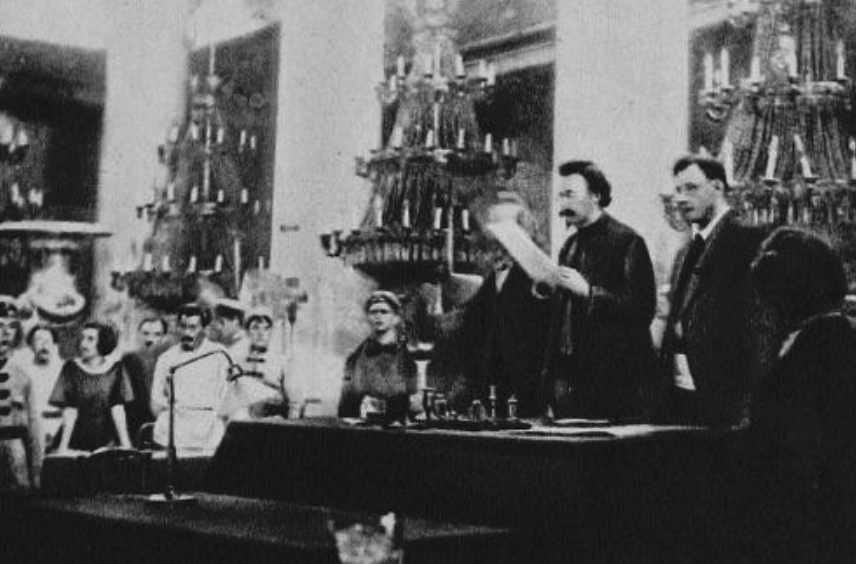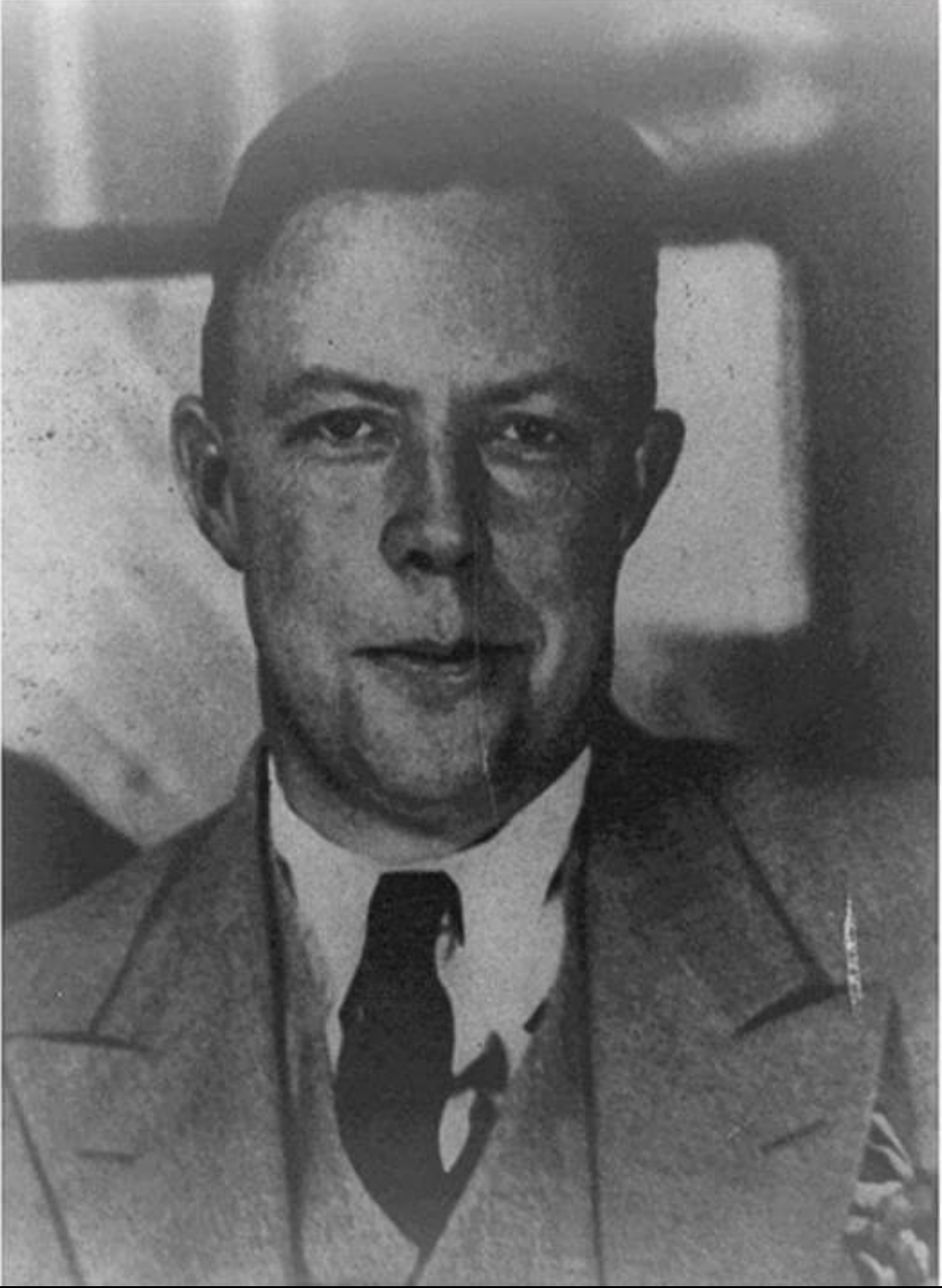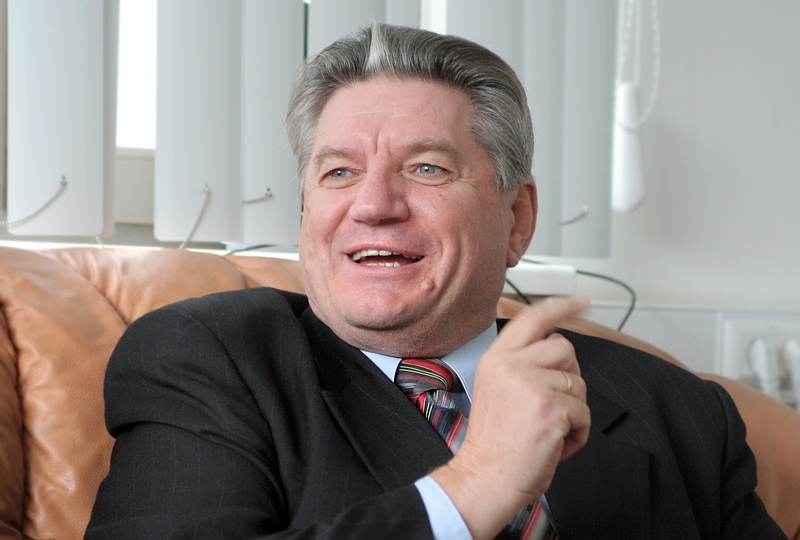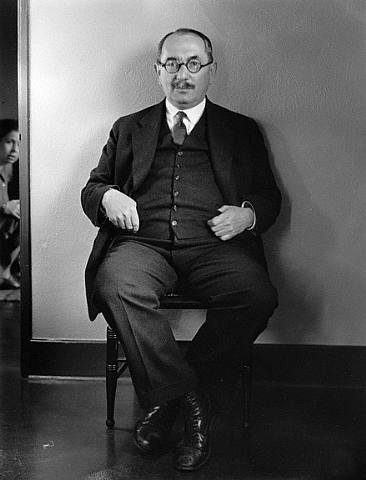Editors Note: For a long period of time the conservatives, liberals and Trotskyites have told the world that the Moscow Trials were frame ups and that the testimonies were coerced by torture or threats to their families. Colonel Victor Alksnis was one of the few people to read the Tukhachevsky transcripts. Victors Grandfather was shot in 1938 so Victors family were always anti-Stalinist.
After reading the transcript Victor came away believing that Tukhachevsky was guilty. This article was penned by him to document his experience.
Posted by Victor Alksnis on Sun, 01/11/2009 – 00:57. (translated from https://www.rus-obr.ru/opinions/4577)
I carefully watched the next entry in the video blog of the President of the Russian Federation dedicated to the Day of Remembrance of the Victims of Political Repressions “The memory of national tragedies is as sacred as the memory of victories.” Honestly, I was extremely disappointed, because I expected a more responsible and balanced speech by the president on this issue.
For me, I.V. Stalin and his time is a very sore and relevant issue until now.
My grandfather – the commander of the second rank, deputy commissar of defense of the USSR for aviation Yakov Ivanovich (Jekabs Janovich) Alksnis, was shot in July 1938. His wife (my grandmother), Kristina Karlovna Mednis-Alksnis, as a member of the family of the traitor to the Motherland (CSIR), spent 13 years in camps and exiles. My father, Imant Yakovlevich, at the age of 10 was left without parents and until the age of 30 wore the stigma “son of an enemy of the people.” He found his mother only in 1957.
Therefore, our family always had anti-Stalinist sentiments and, accordingly, I was an anti-Stalinist.
When perestroika began, he eagerly read all the publications of those years, exposing the crimes of Stalin and his entourage.
In 1989, I was elected People’s Deputy of the USSR and after some time I sent an official deputy request to the then Chairman of the KGB of the USSR V.A. Kryuchkov with a request to acquaint me with the documents relating to my grandfather.
In particular, I asked to show me his criminal case and the materials of the trial of M. Tukhachevsky, since my grandfather was part of the Special Judicial Presence, which sentenced Tukhachevsky and other military leaders to death.
I was particularly interested in the materials of the trial of a group of military leaders led by Tukhachevsky, since M. Tukhachevsky and Robert Eideman (chairman of the Central Council of Osoaviahim of the USSR), who were shot by the sentence of the Special Judicial Presence, were close friends of my grandfather, and they were almost friends with Robert Eideman not since childhood. And for me it was not clear how my grandfather could sentence his friends to death.
After a while I was invited to the Lubyanka and two volumes were placed in front of me. The first is the grandfather’s criminal case, and the second is a transcript of the trial of a group of military men led by Tukhachevsky. I was allowed to make the necessary statements.
I was immediately struck that in the criminal case there were extremely few documents. Grandfather was arrested on November 23, 1937, and shot on July 29, 1938, i.e. He spent 8 months in Lefortovo. And while in the case there were only three or four protocols of interrogations, and almost all of these protocols were about nothing.
For example, one multi-page protocol was devoted to organizing the repair of aircraft of the Air Force. Moreover, the protocol is very detailed, as it seemed to me, the answers to the investigator’s questions were simply rewritten from the governing documents of those years on the organization of aircraft repair.
I was surprised that three days after the arrest, my grandfather wrote a handwritten note in the name of the People’s Commissar of Internal Affairs, Yezhov, about his readiness to give sincere testimonies about his counter-revolutionary activities, but there were no traces of these sincere testimonies in the criminal case.
Judging by the materials of the case, the first interrogation took place only in January 1938. At the same time, judging by the 1956 rehabilitation materials filed in the same case, my grandfather was repeatedly summoned for interrogations and “beat out” evidence from him. But where are these protocols with “knocked out” testimonies, why were they not in the file?
After reviewing the transcript of the Tukhachevsky process, I realized that this process is also not so simple. My conviction that Tukhachevsky and his colleagues were simply forced to incriminate themselves under torture was seriously shaken, because judging by the transcript, they gave their testimonies quite sincerely. After reviewing the transcript of the process, I came to the conclusion that there was still a “military conspiracy”, or something like that, in the Red Army.
I left the KGB building on Lubyanka in great dismay.
Firstly, I realized that my grandfather’s criminal case was “cleaned up” and some very important documents were removed from it. Obviously, these documents were seized during the Khrushchev thaw during the rehabilitation of the grandfather.
Secondly, there was still a “conspiracy of the military” in the Red Army.
And then the events related to the collapse of the Soviet Union began, and I was not up to the “business of days gone by.”
My father was very upset by the collapse of the country. This is surprising, but in spite of the fact that as a result of the tragic events of the 30s his whole life was broken, I did not have to meet a greater patriot of our country. His country died, and six months later, on July 17, 1992, at the age of 65, he also died as a result of a heart attack.
A month before, he and I, at the dacha, at evening tea, once had a frank conversation about what was happening, and suddenly my father said: “If Stalin was alive, he would not have allowed this mess.”
I was shocked! My father, an ardent anti-Stalinist who hated Stalin with all the fibers of his soul, suddenly understood and forgave him …
In 2000, I was elected a deputy of the State Duma, and I turned to the Director of the FSB, N. Patrushev, with a request to allow me to again familiarize myself with my grandfather’s criminal case. I was again invited to the Lubyanka, or rather, to the Kuznetsk bridge in the reading room of the FSB, and I was given a familiar criminal case.
I began to leaf through it, checking the records of 1990, and suddenly, to my amazement, I discovered that it lacked some important documents. For example, the NKVD intelligence report dated 1932 disappeared that the Latvian military attache stated in a private conversation with our agent that the Latvian General Staff has its own people among the military leaders of the Red Army. Among other surnames, the name of my grandfather was also mentioned there.
In 1990, I was very doubtful of this report, since it was unlikely that my grandfather could be an agent of the Latvian General Staff; according to the recollections of my grandmother, he was a stony-stone Bolshevik. But the very fact of the disappearance of this and some other documents allows me to conclude that the “cleaning” of archives continues to this day. The question arises: why?
So, in the archives there are documents that are not satisfied with the current government. The archives were “cleaned” under Stalin, under Khrushchev, under Gorbachev. “Cleaned” under Yeltsin.
And so I have no faith in the current fighters with Stalin.
Please note that more than 70 years have passed since those tragic events, but the archives of those years are still closed. Instead of archival documents, we are forced to read Solzhenitsyn and other detractors of Stalin. And what prevents to open archives? What prevents to open materials on the Katyn case? What prevents to open materials on the Molotov – Ribbentrop Pact? What prevents to publish the transcript of the trial of Tukhachevsky?
So IM has something to hide.
And if so, then they do not have the right to condemn Stalin and his time.
Let THEY open the archives and give people the opportunity to give an assessment to those great and tragic times.



